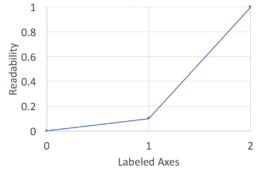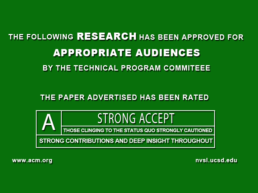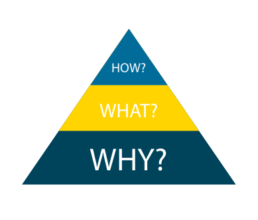Doing Research
Creating Decent Graphs
Good graphs help convey your insights about the system you have built and/or measure by providing the information your reader needs and wants. Bad graphs can leave the reader baffled, squinting, and drawing the wrong conclusions about your work. While it's not reasonable to expect astonishing insight from every graph, you can always make the readable and easy to interpret.
The Expertise, Ignorance, and Personal Failings of the Program Committee (and Other Readers)
A research paper's task is to convey the insights of your work to your audience -- first the reviewers and then your research community. To get published, your paper must satisfy the program committee. Once published, it has to hold the interest of other researchers and engineers. If it fails at either of these tasks, it will not have the impact it should.
How the Sausage is Made
Until you've served on a program committee, the review process may seem opaque and mysterious. PC members generally try to do a good, impartial job of selecting papers, but PC's are human institutions, humans are flawed, so PC's are imperfect. Understanding the PC process can make the results less confusing, and provide useful guidance for crafting papers.
"Make it so, Number One."
You've done it! You have played the key role in a compelling piece of research. You are the first author. You get the glory, but you also have a lot of work to do.
Coming Soon to a Podium Near You...
A talk is like a movie trailer for your paper -- if you do your job, the audience should be excited to read it.
Movie trailers can rely on suspense, mystery, and movie stars to build excitement. You, however, will have to rely on the clear, direct communication of the WHY, WHAT, and HOW of your work, and that requires careful thought and judicious choices about what keep in and what to leave out.Read more
WHY, WHAT, and HOW
Learning to identify good research problems and building successful projects around them is the core skill you will learn in graduate school. Until you master this skill, the distinction between good research topics and bad can seem mysterious and arbitrary. A first step in learning to identify good research is to realize that most successful systems research projects answer three questions: WHY is it interesting? WHAT does it contribute? and HOW does it do it?Read more





